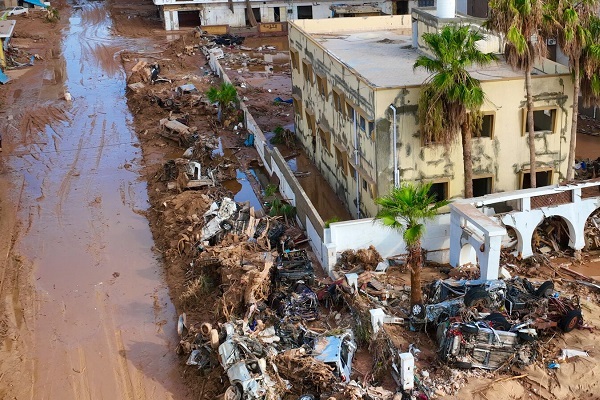Canada: Muslims Unit to Help people in Morocco, Libya

In the early days of September, a heart-wrenching crisis unfolded in Northern Africa, leaving two nations in despair. Western Morocco was struck by a devastating earthquake on September 8th, claiming the lives of nearly 3,000 people. Meanwhile, eastern Libya faced a deluge of floods that resulted in the tragic loss of more than 6,000 lives. Thousands still remain unaccounted for, and the affected communities are left grappling with the aftermath of these catastrophic events.
Amidst the turmoil in Northern Africa, the Muslim community in Winnipeg, Canada, has come together with unwavering solidarity to raise funds and offer a glimmer of hope to the thousands of mourning and displaced families in the disaster-stricken regions.
Ayesha Sultan, the external relations manager for the University of Manitoba Muslim Student’s Association, encapsulates the spirit of this humanitarian effort: “You’re helping someone to restart their life. Someone who has worked for 40, 50 years, and they need a restart, and you’re there to do that.”
The University of Manitoba’s mosque became a focal point for this remarkable display of compassion. A Saturday food drive hosted at the mosque garnered a staggering $4,300 in donations, adding to the $3,500 collected in previous drives. The generosity of the attendees, numbering between 200 and 250, reflects the deep sense of community and shared responsibility that permeates Winnipeg’s Muslim population.
Mubtassim Hossain Labib, secretary of the Muslim Student’s Association, highlighted the profound connection that binds the Muslim community, transcending geographical boundaries. “As a Muslim, we always feel like one body. So if a body of a Muslim hurts anywhere in the world, the whole body aches,” she explained.
The funds raised by Winnipeg’s Muslim community are not just monetary contributions; they represent the determination to rebuild lives shattered by natural disasters. The aid provided will go toward providing essential relief, including shelter, food, clean water, and medical assistance, to those who have been affected the most.
Source: globalvillagespace.com



